ARTICLE AD BOX

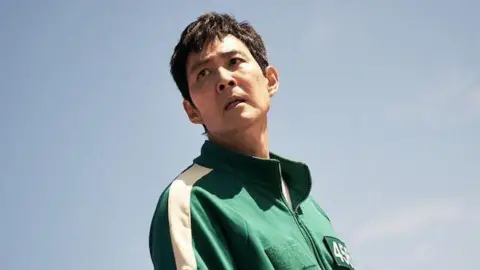 No Ju-han/Netflix
No Ju-han/Netflix
Player 456 returns for season 2
Season two of Squid Game has received reviews as mixed as a Christmas selection box, with TV critics calling it everything from "sensational" to "a letdown".
The Guardian said that after a pretty slow start, the returning series eventually turned into "TV that will make you uncomfortably bloodthirsty indeed".
While the Telegraph described it as a "layered and nuanced story of revenge and redemption".
Netflix's most popular original show returned to our screens on Boxing Day with protagonist Seong Gi-hun (Lee Jung-jae) - aka Player 456 - back for more, three years after his victory in the lethal series of children's games.
*This article contains spoilers*
The first season of the South Korean drama followed a group of 456 people, desperate and in debt, fighting to the death for a huge cash prize.
This time around, the previous winner is joined by hundreds of new competitors who he tries to guide to safety.
The new episodes find the main character "hellbent on seeking revenge on the super-rich puppet-masters who engineered its deadly spectacle", according to the Guardian's Rebecca Nicholson, who awarded three stars.
But the early episodes "feel like delaying tactics", she added, "and considering that this is Squid Game, it is all rather ordinary".
"When we get into the actual games, the smash-hit K-drama finds its feet," she noted. "But it spends far too many episodes dragging its heels extremely painfully."
Series three, which has already been commissioned for 2025, "must do better", she concluded.
"For all of its unevenness, particularly as it is warming up to the proper action, there is one big twist that really works, though whether it is distinct enough from what happens in the first series is unclear," wrote Nicholson.
"And when you think you know where it is going, it turns away from its trajectory, upping the ante and finding its feet. What a shame it takes so long to get there though."

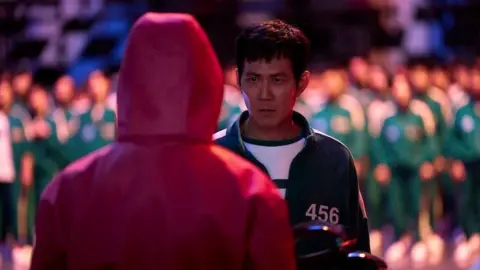 No Ju-han/Netflix
No Ju-han/Netflix
The first series, which the Times' Tim Glanfield notes was viewed as a "dystopian commentary on the ills of late-stage capitalism", became Netflix's biggest ever series launch - streamed by 111 million users in its first 28 days.
Glanfield offered four stars for season two, saying: "The key to the success of this sensational return is the careful and thoughtful pacing, combined with hints of light within the gruesome shade.
"Although the obvious temptation is to throw the viewer straight back into the arena of horror, with 456 new breathless players being manipulated and mutilated in ever-more creative ways (don't worry, there's plenty of that to come), the first few episodes confidently explore life on the outside."
He added: "This is a story of revenge and redemption: more layered, more nuanced and more complex than the original series."
The Telegraph's Ed Power gave season two only three stars however, comparing it to the "equivalent of a difficult second album from an overnight pop star".
"It has lots of what you loved about the first Squid Game, from 2021, but has little interest in surpassing, much less subverting, its predecessor".

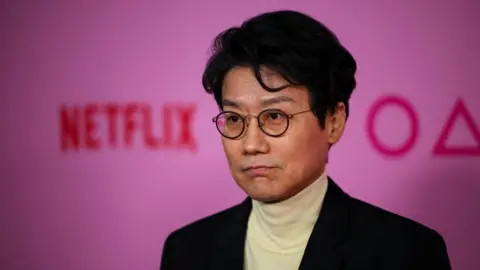 Reuters
Reuters
Hwang Dong-hyuk directed Netflix's most successful show to date
'Impossible to replicate shock'
Another series was not always on the cards. At one point director Hwang Dong-hyuk swore against making another, given the stress of the first had seen him lose quite a few teeth.
Like the characters in the show, it seems he is mainly in season two for the money.
"Even though the first series was such a huge global success, honestly I didn't make much," he told the BBC. "So doing the second series will help compensate me for the success of the first one too."
"And I didn't fully finish the story," he adds.
His dark commentary on wealth inequality touched a nerve with audiences around the globe.
But having killed off almost every character, Hwang had to start from scratch, with a new cast and set of games, and this time high audience expectations.
The Independent's Annabel Nugent said she thinks the director got it bang on with his approach, awarding the new series four stars.
"Squid Game season 2 is nowhere near as shocking as the first – but isn't that the point?" she wrote.
"It is impossible to replicate the shock of the first season, and writer Hwang Dong Hyuk does well not to try."

 Netflix
Netflix
Among the new characters, Nugent noted is "No Eul, a North Korean defector forced to leave her baby behind", "Gyeong Seok, a theme-park caricaturist who needs money to pay for his daughter's cancer treatment" and "Myung Gi, a former YouTube star and crypto bro who lost his money in a scam".
As well as "a young pregnant girl who hides her growing belly beneath her baggy tracksuit" and "a transgender ex-military officer hoping for a new, more accepting life in Thailand".
"Where the first series relied on shock for horror, each death landing like a brisk whack to the back of your head, season two derives terror from what we know as returning audiences, positioning Gi Hun once again as our surrogate," wrote Nugent.
"He also knows what comes next and yet even with that knowledge is powerless to stop it."
She added: "Stripping away the shock and peeling back the mystery that anchored season one is a risk, but one that allows Hwang to lay bare his show's stridently anti-capitalist message."
The Hollywood Reporter's Daniel Feinberg called season two "a thorough letdown".
"It's not a fundamental level on which Squid Game is broken, but season two simply doesn't work."

 5 months ago
24
5 months ago
24
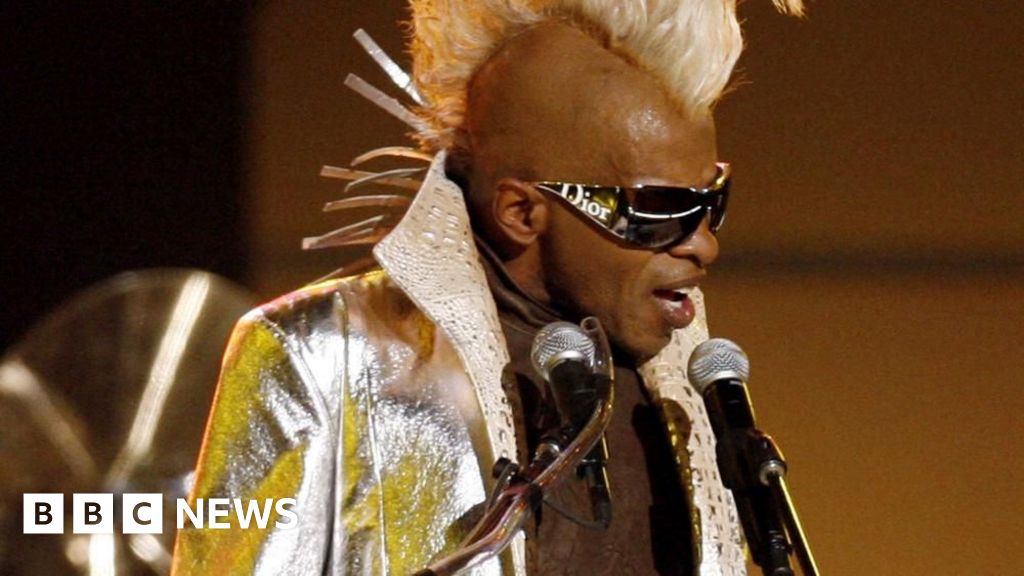

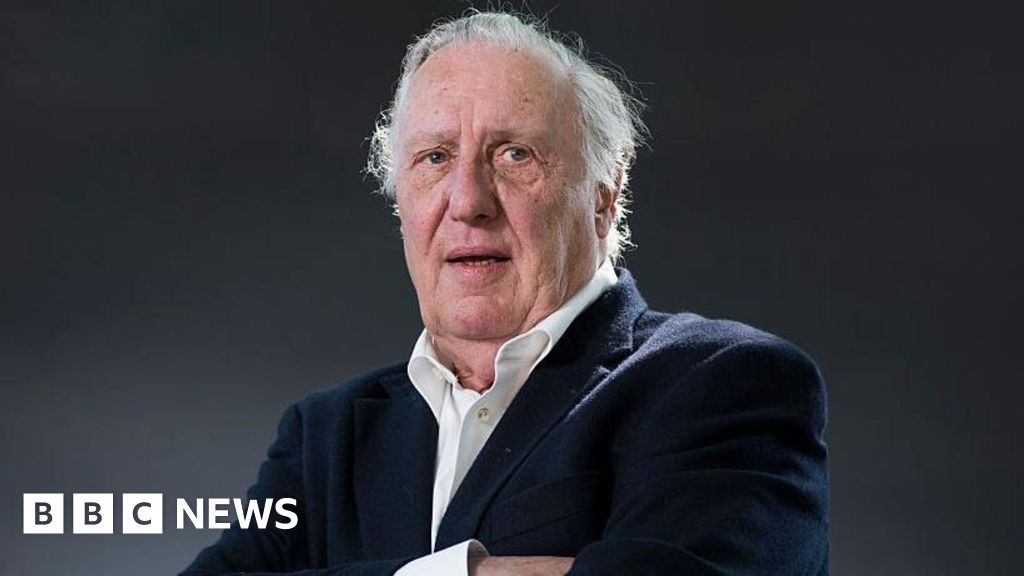





 English (US) ·
English (US) ·